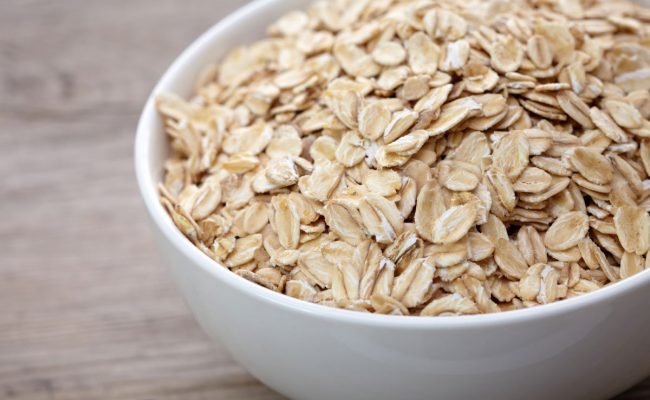
Blueberries are a nutrition power house for many reasons. Like all other berries, blueberries are high in phytochemicals and vitamin C. Researchers are constantly finding out more ways phytochemicals beneficially impact human health.
Specifically, blueberries are rich in the phytochemical anthocyanins. This phytochemical gives fruits and vegetables a deep blue or purple color. Eating a diet rich in anthcyanins, like other phytochemicals, may help lower risk for many diseases.
Here is a closer look at health benefits of blueberries from research.
1 – Lower heart disease risk
Data from a study by Harvard School of Public Health suggests that eating a diet high in blueberries may lower risk for a heart attack. This study looked at the diets of more than 90,000 women and found women who ate the highest amounts of blueberries and strawberries were 34% less likely to have a heart attack during the 18 year study period.
Both strawberries and blueberries had a positive effect on lowering heart attack risk in women, and eating a high amount of both blueberries and strawberries had a slight benefit.
This makes sense because eating nutrients from variety of foods may have a synergistic effect in protecting against some diseases.
Blueberries are also a source of soluble fiber. A diet high in soluble fiber can help lower cholesterol and may help improve blood glucose regulation.
2- Lower cancer risk

There is a modest association between a diet high in fruits and vegetables and lowering cancer risk, according to the American Cancer Society. The rich content of anthocyanins in blueberries may make them especially effective for lowering certain cancer risks.
According to a 2006 study, blueberries may be beneficial for lowering risk of prostate cancer. Cancer cell growth was inhibited in cell cultures from blueberries. More research is needed to understand how this relationship works between blueberry anthocyanins and cancer cells.
Further research also suggests blueberries and cranberries may lower risk for certain cancers by lowering oxidative stress, inflammation and disrupting gene expression related to cancer growth.
Keep in mind blueberries are not the only fruit that has potential for lowering cancer risk, and the American Cancer Society suggests eating a varied diet rich in produce.
Blueberries should be part of the diet, but other berries and different colored fruits and vegetables may have a synergistic effect on lowering cancer risk.
3- Improving brain health
Research suggests a diet rich in fruits and vegetables may help lower risk for dementia with aging. The exact cause of dementia is still being studied, but there continues to show a relationship of diet and exercise on brain health.
A 2009 review article suggests blueberry or Concord grape supplementation increased memory in people with mild brain impairment. Researchers concluded eating foods like blueberries, Concord grapes and walnuts may help brain health with aging.
Other research on rats showed that feeding rats either spinach, blueberry or strawberry extracts in addition to their diet reversed cognitive decline. The rats fed the diet high in blueberries had high levels of the neurotransmitter dopamine in the brain which may have many beneficial impacts.
4- Improving eye health
The scientific evidence for blueberries affecting eye health has not been very strong until recently. In theory it makes sense that blueberries would help improve eye health. The antioxidants in blueberries can help lower inflammation and stress in the eyes and protect eye cells from damage.
A 2010 review article noted that there was in vitro studies suggesting how blueberries can further benefit eye health. Some studies have shown that blueberries actually protect retinal cells in the eye from death and may prolong their life. The retina is particularly vulnerable to oxidative damage, so the retinal cells have a high need of being protected by antioxidants.
Although more research is needed to further understand the relationship between blueberries and eye health, there appears to be a beneficial role between blueberries and eye health.
5- Fiber boost
Other benefits from blueberries are many, as blueberries provide other nutrients such as vitamin B6, iron and magnesium. A cup of blueberries provides about 4 grams of fiber. Getting adequate fiber per day is important for maintaining intestinal tract health and lowering cholesterol.
Eating a cup (or more) of blueberries per day can help you reach your daily fiber recommendation and provide a natural source for many vitamins, minerals and phytochemicals.
Conclusion
Blueberries are a rich source of many phytochemicals and particularly anthocyanins.
Research studies suggest blueberries may play a role in lowering risk for heart disease, certain cancers, protecting eye health and may even help protect against cognitive decline through aging.
Blueberries also provide a source of fiber, 4 grams per cup. Fiber from blueberries can help lower cholesterol and help regulate blood glucose levels.
Researchers are still trying to further understand the role between phytochemicals from food and how they impact the body. The American Cancer Society suggests eating a variety of fruits and vegetables every day.
References used in this article












Cynthia says
Thanks for sharing. Nice to read something healthy about Blueberries. Please keep update more informative content with us.